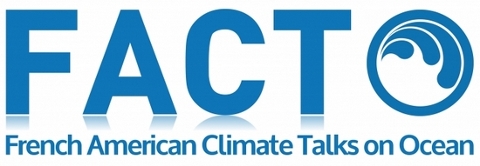In the summer of 2014, many Caribbean islands and shores within the Gulf of Mexico experienced massive landings of an invasive brown seaweed called Sargassum, causing strong disturbances in marine ecosystems and beach management. Although the observation of Sargassum landing is not new, its critical evolution over the past few years has raised concerns from economic and scientific standpoints. It is now considered as a global issue.
Several scientific initiatives in France and USA were undertaken to:
- understand the origins of Sargassum landings in unusual areas;
- forecast and model the travel routes of Sargassum patches;
- evaluate the impact of Sargassum overgrowth on marine ecosystems;
- engineer the collection and the processing of Sargassum.
In order to share insights and approaches to the multiple issues of Sargassum and to encourage the coordination of French-American scientific collaborations, the Office for Science & Technology of the French embassy, in partnership with the French National Research Institute for Sustainable Development (Institut de Recherche pour le Développement) and Texas A&M University in Galveston (TAMUG), organizes a two-day workshop on January 18-19, 2018 in Galveston, Texas. The workshop will gather marine biologists, oceanographers, algologists, physicists, data and remote sensing scientists from prominent research institutions in France and the United States. The participation of other countries is welcome.
The primary purpose of the workshop is to bring together scientists working on Sargassum from different perspectives in order to share expertise, develop mutual awareness and foster French-American collaborative research on this issue.
Free attendance upon registration – limited available seats.
For questions, please contact Peyton Croaker at pacroaker@tamu.edu


